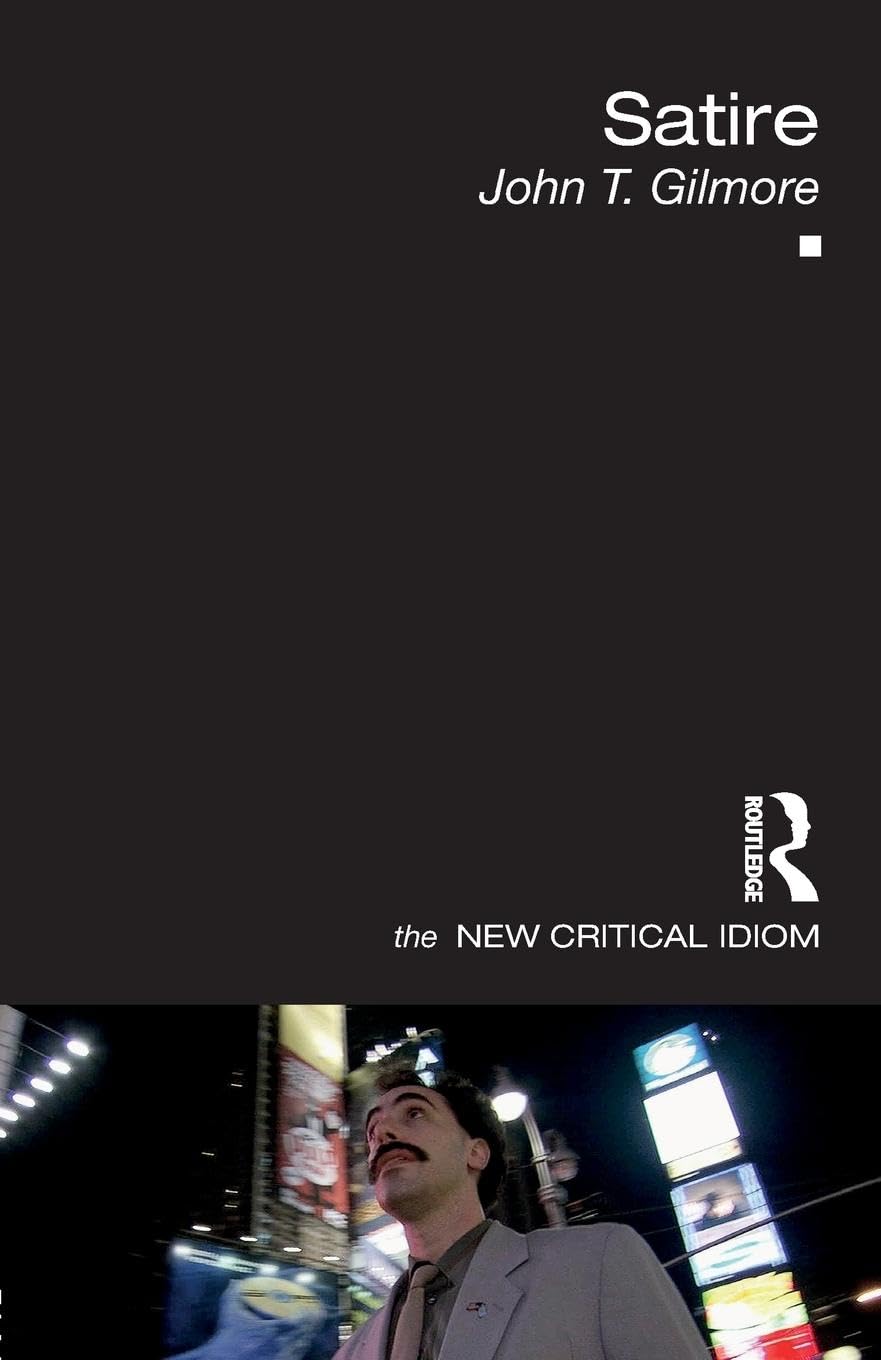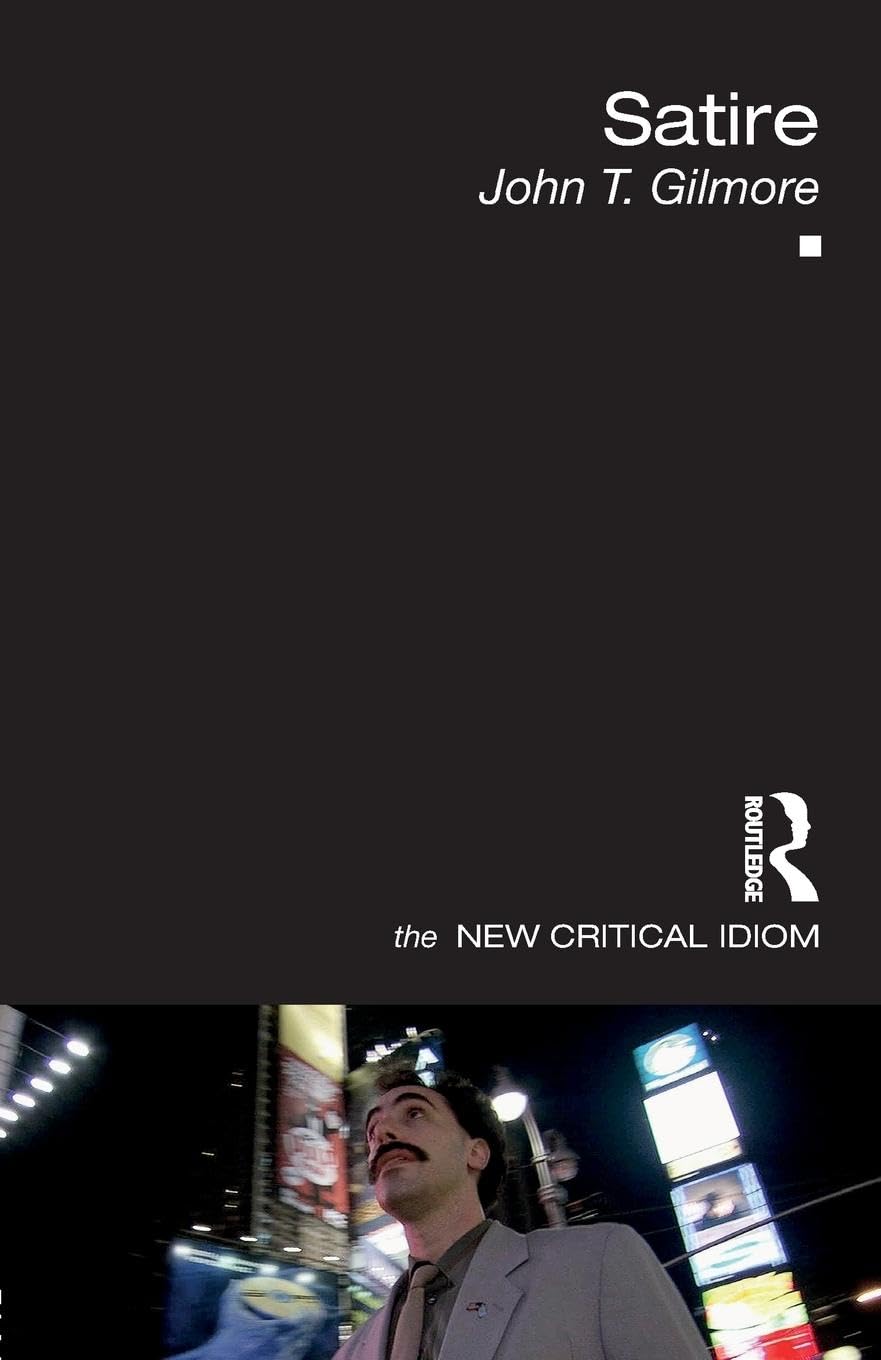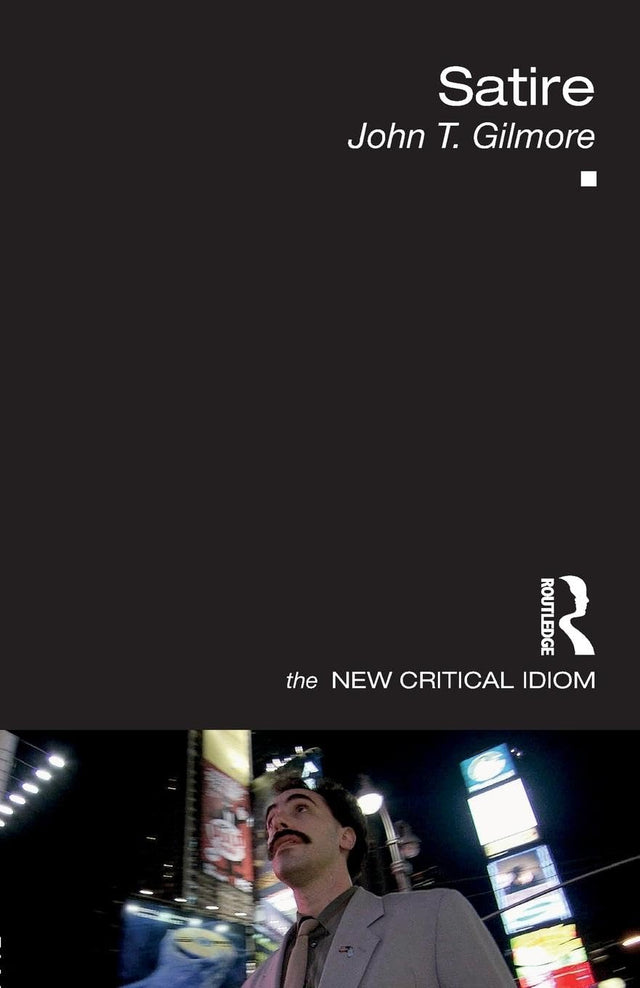Satire (The New Critical Idiom)
Satire (The New Critical Idiom) is backordered and will ship as soon as it is back in stock.
Couldn't load pickup availability
Genuine Products Guarantee
Genuine Products Guarantee
We guarantee 100% genuine products, and if proven otherwise, we will compensate you with 10 times the product's cost.
Delivery and Shipping
Delivery and Shipping
Products are generally ready for dispatch within 1 day and typically reach you in 3 to 5 days.
Book Details:
-
Publisher: Routledge
-
Author: John T. Gilmore
-
Language: English
-
Edition: 1st Edition
-
ISBN: 9780415480826
-
Pages: 216
-
Cover: Paperback
-
Dimensions: 7.7 x 5.1 x 0.6 inches
About the Book:
The Tradition of Satire by John T. Gilmore offers a comprehensive exploration of the satirical tradition, delving into its origins, evolution, and impact across cultures and time periods. Through a blend of thematic, theoretical, and historical perspectives, Gilmore provides a nuanced investigation into the complexities of satire, questioning its nature, purpose, and boundaries.
The book addresses central questions about satire, such as: Is it a tool for radical change or does it serve more conservative interests? Is satire inherently funny or cruel? Must satire always have a target or victim? Drawing on examples from diverse sources—from ancient Egyptian texts to the provocative cartoons of Charlie Hebdo, from European formal verse satire to contemporary digital media like YouTube clips—Gilmore provides a broad and inclusive study of how satire has functioned across different genres, regions, and historical contexts.
This thought-provoking volume examines the moral politics of satire, its universality, and the boundaries of free speech and legitimacy. It offers an in-depth analysis that will captivate students and scholars of literature, media, cultural studies, politics, and philosophy, providing them with a rich understanding of satire's role in society.
Whether you are a student of literature, media, or politics, or simply someone intrigued by the powerful and provocative nature of satire, this book will serve as an essential guide to understanding the tradition and its enduring influence.





